We are excited to announce our 2021 cohort of LTER grad student science writers. We received a high number of impressive applications, and after much deliberation we are happy to introduce seven students who represent sites from across the network and who bring unique backgrounds, experiences, and talents to the team. Over the next year they will contribute stories about LTER science and outreach to our website and LTER Road Trip story map. We look forward to sharing their work.
Our seven LTER grad student writers for 2021 include (in alphabetical order):
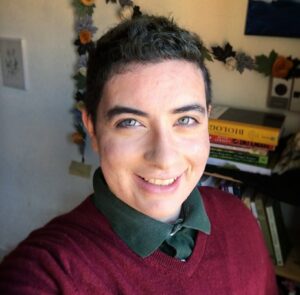 Ezra Kotter
Ezra Kotter
Ezra is a plant ecologist who conducts research at the Virginia Coast Reserve LTER as part of their PhD dissertation at George Washington University. Their research focuses on how sea level rise impacts the traits, geographic distribution and population genetics of tidal marsh grasses. They are passionate about science communication, social justice advocacy and art/science collaboration.
- Utilizing LTER Experiments for Eco-Evolutionary Insights
- Designing a Long-Term Experiment to Withstand the Rising Tides
- Public Engagement at LTER Sites: Social Scientists Highlight Role of Communication Specialists
- Expanding the “Bio” in Biogeochemical Modeling: Including Voles in Arctic Climate Models
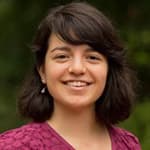
Catalina Mejia
Catalina is a graduate student in Cornell University’s Department of Ecology & Evolutionary Biology, and is affiliated with Hubbard Brook LTER. Her current research focuses on nitrogen cycling in temperate forests, but her broader science interests lie in how climate changes are affecting natural ecosystems.
Megan O’Hara
Megan working toward a Master’s in Marine and Estuarine Science at Western Washington University. Her research focus is on plankton ecology and she is affiliated with the Northern Gulf of Alaska (NGA) LTER site.
- Pika Enthusiasts Unite under a Common Theme
- Women in Oceanography: Highly Accomplished but Still Underrepresented
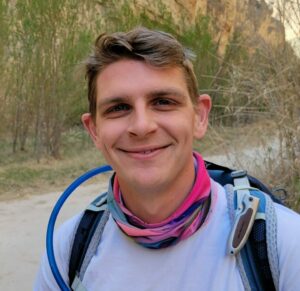 Tim Ohlert
Tim Ohlert
Tim is a PhD candidate at the University of New Mexico studying plant ecology with Dr. Scott Collins. He researches desert plant communities and their sensitivity to drought at the Sevilleta (SEV) LTER and Central Arizona – Phoenix (CAP) LTER.
- The Desert in Sync: In the Chihuahuan Desert, Plants and Pollinators Coordinate to Survive
- Urban Ponds Help Amphibians Thrive in Cities
- In Search of Commonality: Plant Communities Exhibit a Wide Variety of Responses to Global Change
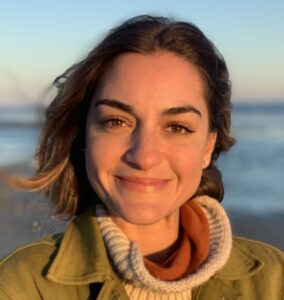 Mareli Sanchez-Julia
Mareli Sanchez-Julia
Mareli’s graduate research focuses on understanding how soil properties and plant traits shape the mycobiomes of plants in coastal and lowland tropical forests. She enjoys thinking about how micro-scale fungal networks shape macro-scale ecosystem processes. Mareli likes to balance her dissertation work with interdisciplinary science writing, inventive cooking, throwing pottery, and reading fiction.
- A Not So Solid Season: Alpine Lake Ice Cover Responds to a Changing Climate
- Pooling Insights on Organic Matter Dynamics: Five Emergent Themes from a Network Wide Synthesis
- Taking it to the Park: Mapping Sawgrass Vulnerability to Peat Collapse in the Florida Everglades
Alina Spera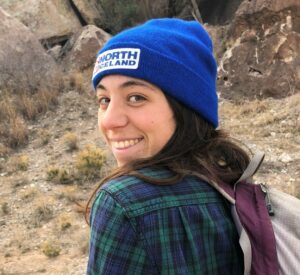
Alina is a PhD candidate at the University of Texas at El Paso and works as part of the Beaufort Lagoons Ecosystem LTER team. Alina’s research interests include ecology and biogeochemistry with a focus on studying rapidly changing coastal systems. As part of the BLE, Alina studies the ecological implications of carbon cycling in arctic coastal watersheds and lagoons.
- Thawing Out Coastal Arctic Food Webs With Long-Term Biochemical Data
- Stream Dissolved Nitrogen Cycling Responds to Human Activity Across the Landscape
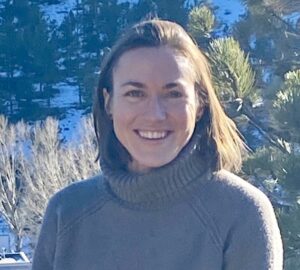
Angela Theodosopoulos
Angela is a PhD Candidate in Dr. Scott Taylor’s lab in the EBIO department at the University of Colorado, Boulder. Angela is broadly interested in understanding the mechanisms that shape host-parasite interactions. Currently, much of her work focuses on malaria parasites that infect Colorado birds and Angela spends her field seasons studying breeding birds at the Niwot Ridge LTER.










